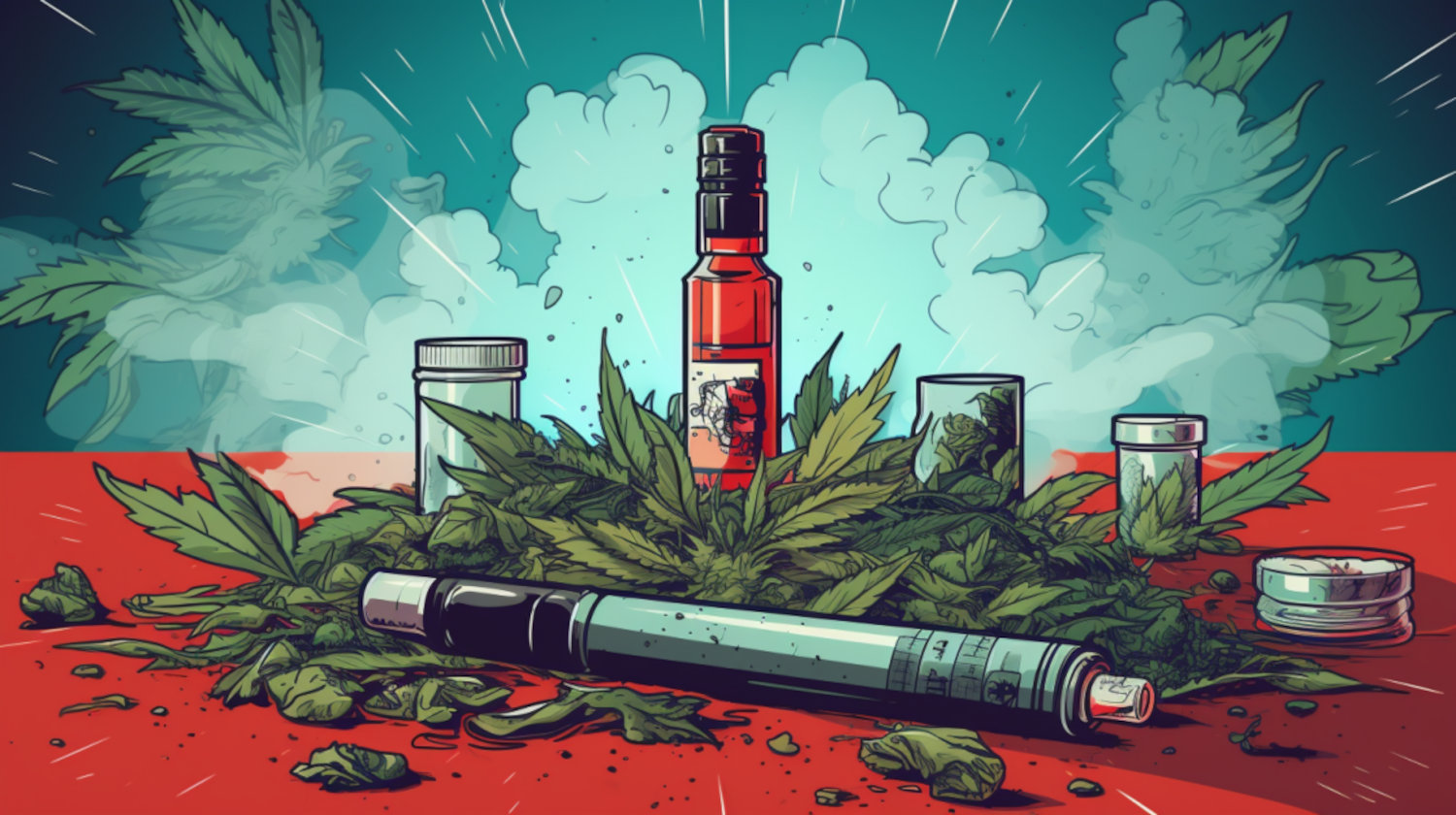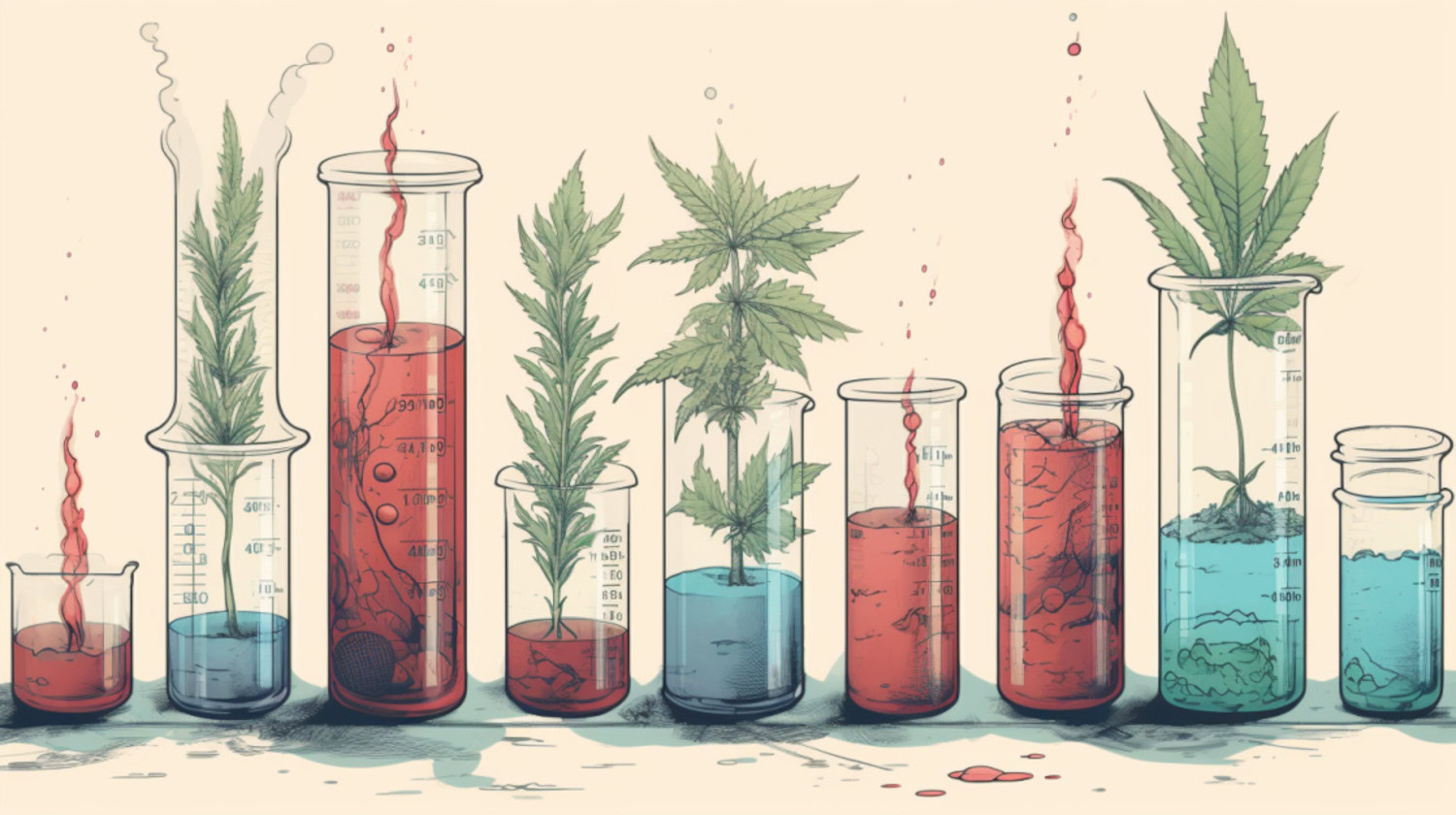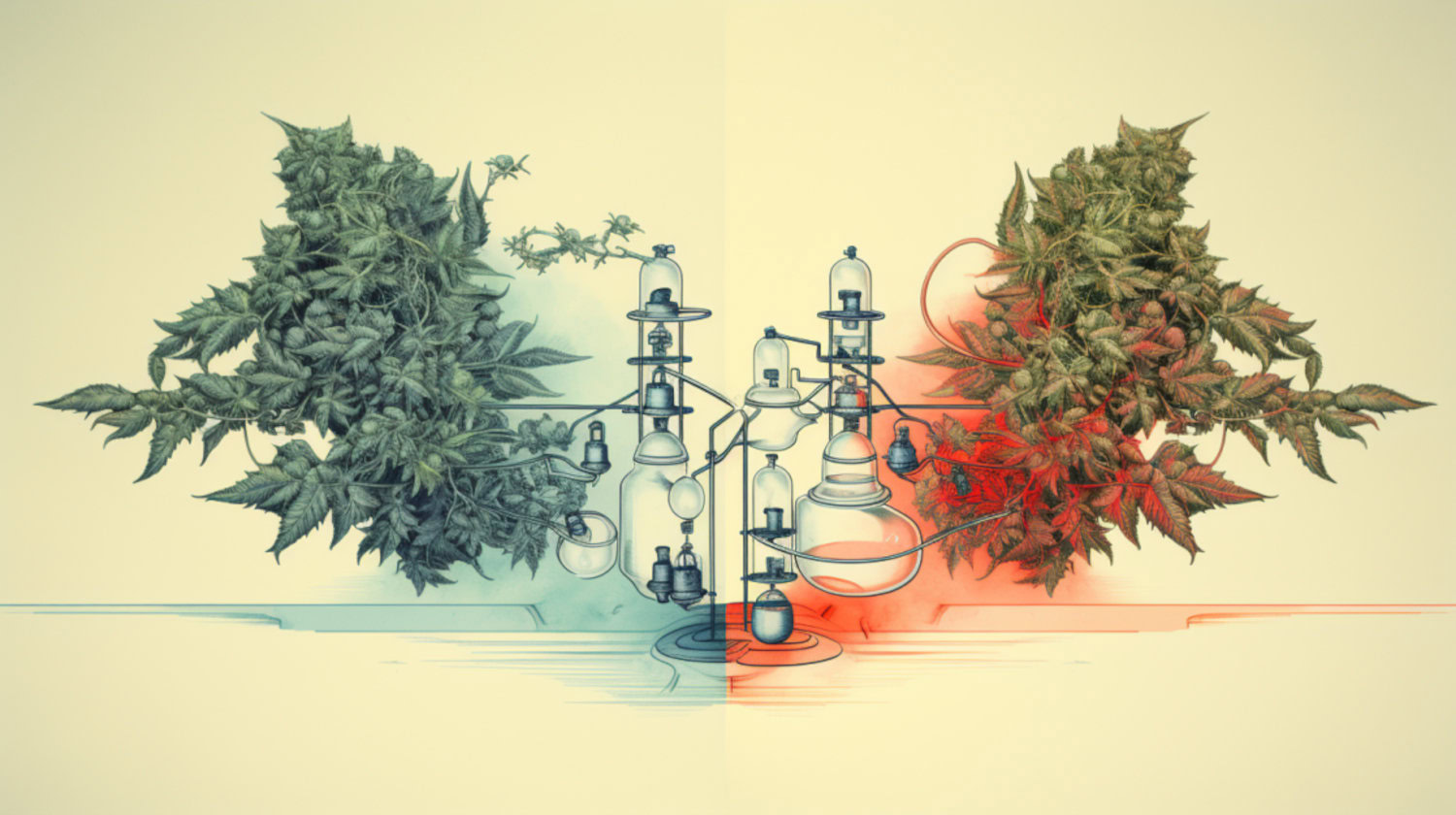With the passage of the 2018 Farm Bill, there's been a surge in interest surrounding alternative cannabinoids beyond just THC and CBD. THC-H, or tetrahydrocannabihexol, is one compound gaining attention.
Notably, THC-H is thought to have special qualities that might make it different from regular THC, such as increased potency and longer-lasting effects.
What Is THC-H?
THC-H, or tetrahydrocannabihexol, is a rare cannabinoid with a reported high potency and unique effects. Discovered in 2019, it's structurally like Delta-9 THC. However, it features a longer carbon side chain, potentially enhancing its binding affinity. While naturally occurring in cannabis, THC-H is typically found in trace amounts.1 This has led manufacturers to produce it semi-synthetically from CBD.
Due to the lack of current research, exactly how THC-H works in the body is unclear. It's speculated that THC-H might work with the endocannabinoid system, a network in our bodies that helps control different functions. Like other cannabinoids, THC-H may attach to certain receptors in the brain and body, which could have effects on mood, pain, appetite, and other functions that the endocannabinoid system helps manage.
Effects and Benefits of THC-H

Consumers report that THC-H delivers potent, euphoric effects with enhanced sensory perception and relaxation. Its effects are likely more intense and longer-lasting than those of Delta-9 THC. Due to its strength, it's primarily recommended for experienced consumers. Always start with a low dose to assess individual tolerance.
Even though there aren't many studies focused solely on THC-H, we can look at research on other cannabinoids to get an idea of THC-H's effects. More research, specifically on THC-H, is needed to really understand how it works and how it might help patients medically.
Risks of THC-H
While THC-H seems like it could be really powerful, there are also potential risks to using it that consumers should know about. Since there hasn't been a lot of research done on THC-H yet, it's hard to know all the risks.
Studies indicate that when someone first gets high on cannabinoids like THC-H, they might feel really happy, time might seem strange, their senses might be more intense, and they might have trouble moving smoothly. However, not all the effects are positive. Some people might feel scared, anxious, or sad.
The dangers linked with semi-synthetic cannabinoids, like THC-H, are similar to those of delta-8 THC.2 These risks stem from a lack of clear rules, testing, and safe manufacturing processes.
With THC-H, consumers should also worry that there aren't any rules or regulations for how strong it can be, if the formula is always the same, or if it's safe from contaminants or chemicals. This means there's a chance you could use too much by accident or end up with something in your THC-H that shouldn't be there.3
THC-H vs. Other Popular Cannabinoids

- THC-H vs. Delta-9 THC: THC-H and delta-9 THC are both intoxicating compounds found in cannabis, but THC-H is reputed to be one of the stronger cannabinoids. While delta-9 THC is well-known for its intoxicating effects, THC-H is believed to produce a more intense and longer-lasting high.
- THC-H vs. Delta-8 THC: Delta-8 THC shares similarities with THC-H in terms of intoxicating effects, but THC-H is often reported to be more potent. Both cannabinoids offer potential therapeutic benefits, such as pain relief and anxiety reduction, but users may find THC-H to deliver a more pronounced euphoria compared to delta-8 THC.
- THC-H vs. Delta-10 THC: Delta-10 THC is a relatively new cannabinoid that has gained attention for its unique properties. Delta-10 THC is characterized by its uplifting and stimulating effects.
- THC-H vs. THCP: THCP, or tetrahydrocannabiphorol, is another potent cannabinoid that has garnered interest in the scientific community. While both THC-H and THCP are considered among the strongest cannabinoids, THCP is reported to have a higher binding affinity to cannabinoid receptors in the body.4
- THC-H vs. THCV: THC-H and THCV (tetrahydrocannabivarin) are distinct cannabinoids with different properties. While THC-H is recognized for its potent intoxicating effects, THCV is known for its potential to suppress appetite and promote weight loss.5
THC-H Products

Right now, THC-H is hard to find, especially in states and countries where there are regulations about what can be sold. This is because THC-H is still pretty new, and there aren't a lot of rules or studies about it yet.
Sometimes, you might be able to find THC-H products popping up in places where there aren't strict rules about what can be sold. These products often come as edibles, like gummies, chocolates, or cookies, which are easy to eat without anyone noticing. They also come in vape cartridges, which are small containers filled with THC-H oil that you can smoke using a vape pen.
When you're looking at THC-H products, it's important to be careful. These products don't have any regulations to make sure they're safe or that they have accurate labeling. Without rules, there's a chance products might not be the same every time you buy them; they could be stronger than you expect, or they could have contaminants in them.
According to the National Library of Medicine, research on THC-H is limited, and more studies are needed to fully understand its effects and safety. It's best to be cautious if you're thinking about getting THC-H products from any retailer. Approach it responsibly, starting with low doses and being mindful of its legal status in your jurisdiction.
References
- Linciano P, Citti C, Russo F, et al. Identification of a new cannabidiol n-hexyl homolog in a medicinal cannabis variety with an antinociceptive activity in mice: cannabidihexol. Sci Rep. 2020;10(1):22019. Published 2020 Dec 16. doi:10.1038/s41598-020-79042-2 ↩︎
- Leas EC, Harati RM, Satybaldiyeva N, et al. Self-reported adverse events associated with ∆8-Tetrahydrocannabinol (Delta-8-THC) Use. Journal of cannabis research. 2023;5(1). doi:https://doi.org/10.1186/s42238-023-00191-y ↩︎
- Meehan-Atrash J, Rahman I. Novel Δ8-Tetrahydrocannabinol Vaporizers Contain Unlabeled Adulterants, Unintended Byproducts of Chemical Synthesis, and Heavy Metals. Chemical Research in Toxicology. 2021;35(1):73-76. doi:https://doi.org/10.1021/acs.chemrestox.1c00388 ↩︎
- Citti C, Linciano P, Russo F, et al. A novel phytocannabinoid isolated from Cannabis sativa L. with an in vivo cannabimimetic activity higher than Δ9-tetrahydrocannabinol: Δ9-Tetrahydrocannabiphorol. Sci Rep. 2019;9(1):20335. Published 2019 Dec 30. doi:10.1038/s41598-019-56785-1 ↩︎
- Walsh KB, McKinney AE, Holmes AE. Minor Cannabinoids: Biosynthesis, Molecular Pharmacology and Potential Therapeutic Uses. Frontiers in Pharmacology. 2021;12. doi:https://doi.org/10.3389/fphar.2021.777804 ↩︎
The information in this article and any included images or charts are for educational purposes only. This information is neither a substitute for, nor does it replace, professional legal advice or medical advice, diagnosis, or treatment. If you have any concerns or questions about laws, regulations, or your health, you should always consult with an attorney, physician or other licensed professional.




